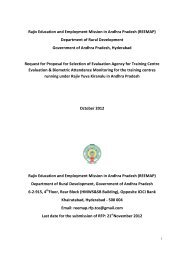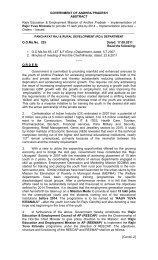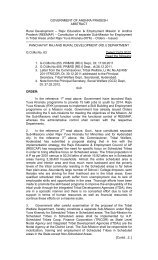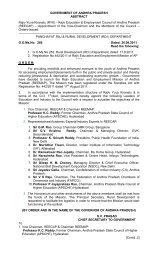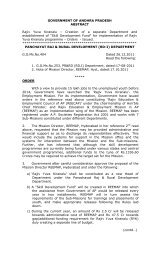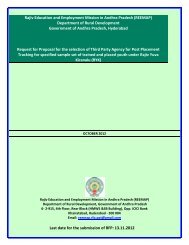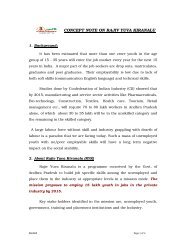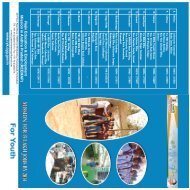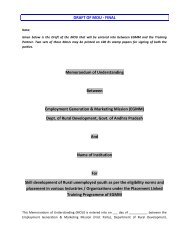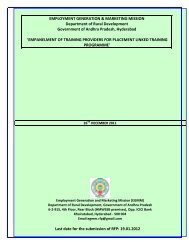3.RYK guidelines - Rajiv Yuva Kiranalu - Centre for Good Governance
3.RYK guidelines - Rajiv Yuva Kiranalu - Centre for Good Governance
3.RYK guidelines - Rajiv Yuva Kiranalu - Centre for Good Governance
Create successful ePaper yourself
Turn your PDF publications into a flip-book with our unique Google optimized e-Paper software.
8<br />
Third Party Evaluation<br />
Determining the quality of trainings to meet standards of industrial requirements<br />
is a challenging issue <strong>for</strong> all Sub-Missions as well as REEMAP. The outcome of any training<br />
is acquisition of new Knowledge, Attitudes and Skills (KAS) by the trainees. It needs to<br />
verify some important elements such as the candidate’s objectives, course in which<br />
participated, instruction material issued, quality of faculty, actual course delivered,<br />
learning environment, and provision of facilities entitled by the trainees and their perceived<br />
gains and gaps.<br />
REEMAP decided to have an evaluation/impact assessment system<strong>for</strong> all completed<br />
and on-going trainings through Independent Assessment Agencies (Third Party). These<br />
assessment agencies would be selected through following due process and selected by<br />
adopting Combined Quality Cum Cost Based System (CQCCBS)by the Executive<br />
Committee of RYK.<br />
Core principle that shall guide Third Party Assessment (TPA) is that the assessment<br />
findings shall be used to strength the programme qualitatively and to align it strictly to<br />
market needs so as to ultimately maximise the benefit to unemployed youth of A.P.<br />
8.1 Objectives of Third Party Evaluation (TPE)<br />
i. Evaluate the processes involved in mobilization, selection of youth, batch<br />
<strong>for</strong>mation and organizing the trainings and effectiveness of these processes;<br />
ii. Assess the availability and quality of infrastructure and the faculty in each<br />
training centre.<br />
iii. Examine the post training placement tracking system and its effectiveness.<br />
iv. Assess impact of the training on the participants’ skill, attitude, per<strong>for</strong>mance,<br />
income etc.<br />
8.2 Assessment Mechanism<br />
To make the assessment mechanism fool proof, fair and devoid of malpractice<br />
following method of assessment shall be adopted.<br />
i. The assessment job shall be allotted to the empanelled agencies on roster basis.<br />
This allotment shall be done only after the Training Partners / department<br />
Own Training <strong>Centre</strong>s submit the list of trained candidates after completion<br />
training. The Training Partners should not know which agency will assess its<br />
Guidelines - <strong>Rajiv</strong> <strong>Yuva</strong> <strong>Kiranalu</strong><br />
26



